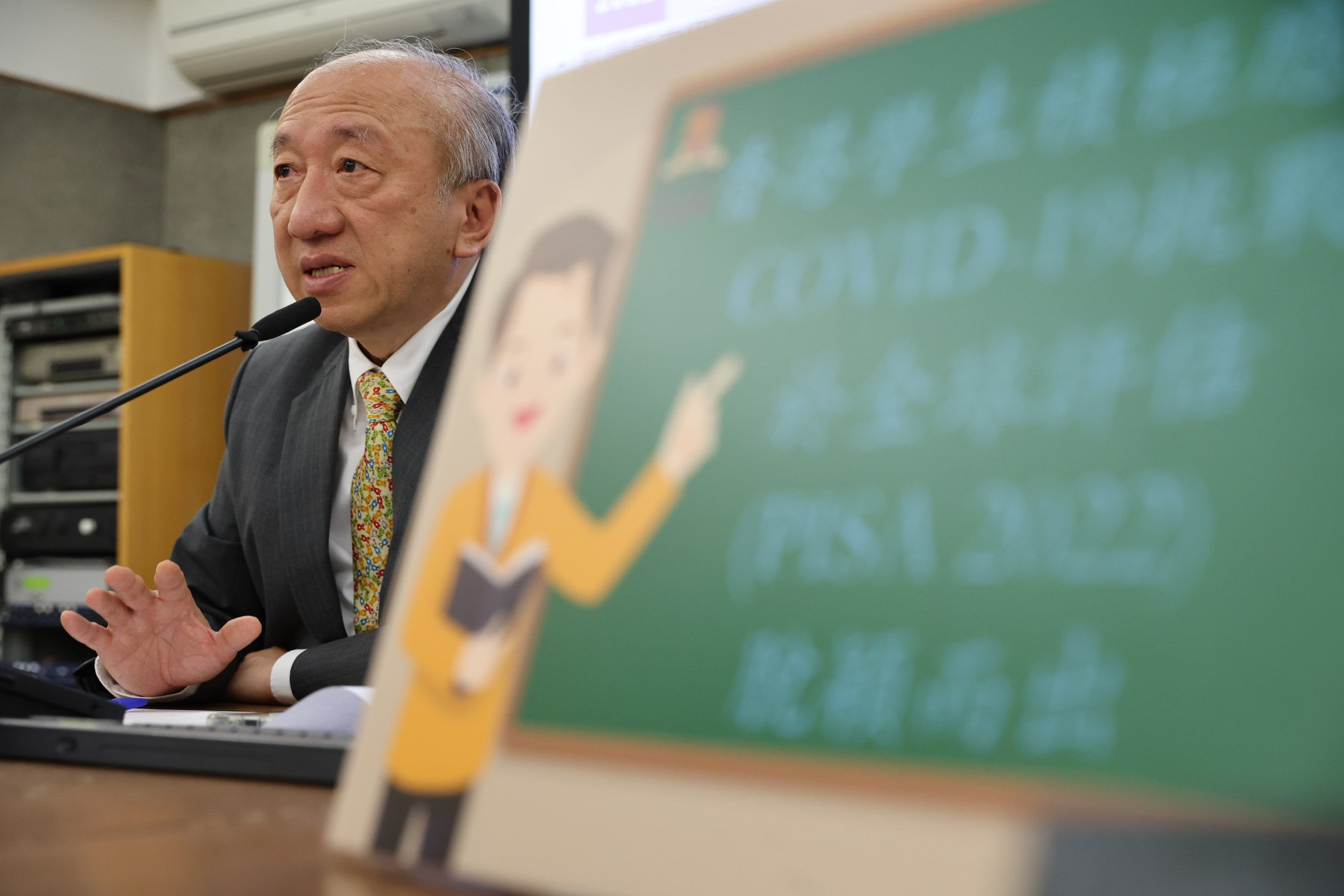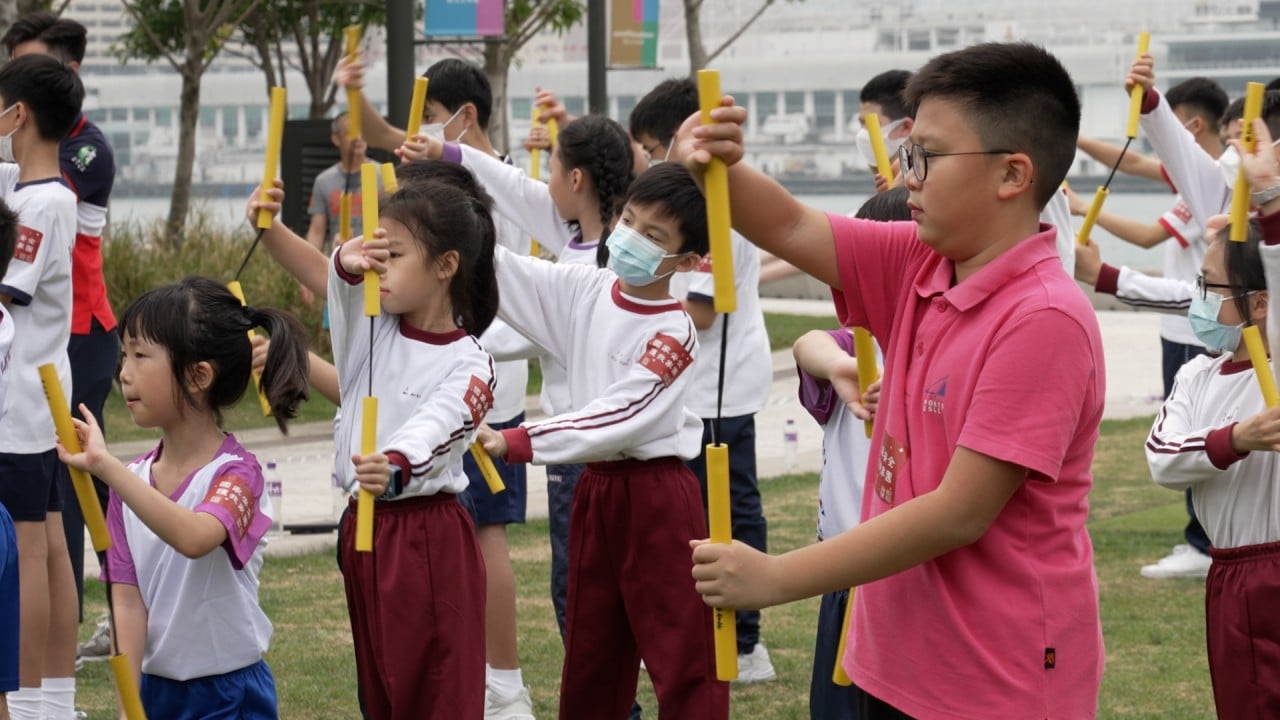
Hong Kong secondary school pupils’ performance falls in global Pisa study on reading and maths competency, with pandemic blamed for general decline
- Hong Kong pupils have dropped out of the top 10 to 11th place for mother tongue literacy in the Programme for International Student Assessment
- But in a related study, Hong Kong ranked second worldwide in terms of effectiveness in digital learning and educational equity
Hong Kong secondary school students’ performance has fallen in a global study on reading and maths competency, in line with peers elsewhere as a result of the pandemic, according to researchers.
The Programme for International Student Assessment (Pisa) found that Hong Kong pupils had dropped out of the top 10 to 11th place for mother-tongue literacy, their worst performance since the study, held every three years, began in 2000. The results were announced on Tuesday afternoon.
But among the 15-year-olds polled worldwide in a related study, Hong Kong ranked second in terms of effectiveness in digital learning and educational equity, with researchers noting the performance of students living in public housing estates and Mid-Levels, an upmarket area, was similar.

Hong Kong remained fourth out of 81 economies for maths in the Pisa study behind Singapore, Macau and Taiwan, despite its overall score dropping to 540, down 11 points from 2018, when the last assessment was conducted before it was suspended because of the pandemic.
Local pupils climbed two spots to seventh place internationally for science, scoring 520 points, compared with 517 in 2018.
The Education Bureau said the Pisa study showed Hong Kong students’ steady performance with overall scores continuously surpassing the international average, and commended the results despite challenges brought by the pandemic.
Singapore topped the rankings for all three subjects, with Macau, Taiwan, Japan and South Korea in the top 10.
Hong Kong primary schools hardest hit in education sector by UK emigration wave
The organisation said it had seen a general decline in performance due to the pandemic, with more than 30 economies experiencing a drop in maths and reading scores.
Professor Hau Kit-tai, national project manager of Hong Kong Pisa 2022, noted that the city’s score in reading fell because of school closures during the pandemic when students had inconsistent studying habits despite regular online lessons.
“For subjects like maths and science, it is easy to self-monitor and to check for correct answers. In the same amount of revision time, students may feel like they learn more if they spend time on maths and science compared with reading,” he said.
“They might neglect time spent on studying languages but will not notice their skills deteriorating on a day-to-day basis.”
Hau said educators would have to monitor future rounds of Pisa reading results to assess whether there was serious cause for concern.
He noted the local students maintained their maths ranking despite a drop in the points they scored.
The bureau said the suspension of face-to-face classes and reduced campus life had adversely affected the reading atmosphere.
It said it would conduct an in-depth analysis and devise measures to address the reading interests and abilities of students in that age group.
Hong Kong pupils struggle in Chinese, English and maths after 3-year test break
Nearly 6,000 students, all aged 15, from more than 160 schools in Hong Kong took part in the Pisa test from May to July last year.
The pupils’ knowledge, skills, attitudes and values in terms of various local and global cultural issues – including environment, public health and the economy – as well as interactions across cultures and collective well-being were assessed in the study organised by the Organisation for Economic Cooperation and Development (OECD).
A separate survey of the 5,907 participating Hong Kong children, teachers and their parents found that more than half of the students had experienced school closures exceeding three months.
Three-quarters of the students attended online classes daily, higher than the OECD average of 51 per cent.
Number of Hong Kong undergraduates at US universities falls to record low
Hau commended the teachers’ quick adjustment to online teaching, which allowed Hong Kong to rank second worldwide in the survey for its effectiveness of digital learning, behind Ireland.
Hong Kong also emerged second in the world for educational equity, which factors the spread between the best and worst students and the effect of their social and economic backgrounds.
According to the survey, 17 per cent of financially disadvantaged students ranked in the top quartile in maths, higher than the OECD average of 10 per cent.
“We looked at the relationship between the students’ grades, and the social status of their parents. This goes to show that, the results of students who live in Mid-Levels are similar to those living in public housing,” Hau said.


